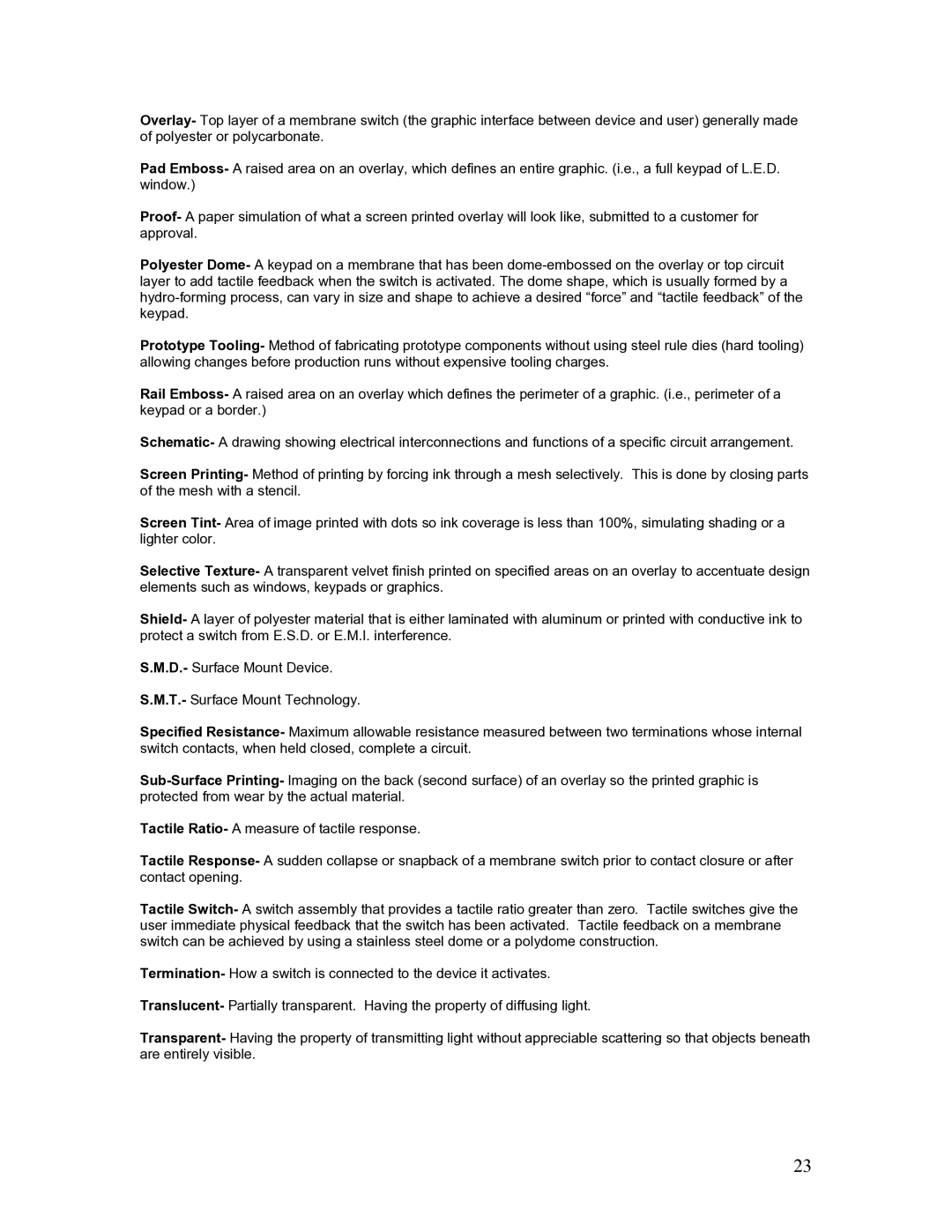Overlay- Top layer of a membrane switch (the graphic interface between device and user) generally made of polyester or polycarbonate.
Pad Emboss- A raised area on an overlay, which defines an entire graphic. (i.e., a full keypad of L.E.D. window.)
Proof- A paper simulation of what a screen printed overlay will look like, submitted to a customer for approval.
Polyester Dome- A keypad on a membrane that has been
Prototype Tooling- Method of fabricating prototype components without using steel rule dies (hard tooling) allowing changes before production runs without expensive tooling charges.
Rail Emboss- A raised area on an overlay which defines the perimeter of a graphic. (i.e., perimeter of a keypad or a border.)
Schematic- A drawing showing electrical interconnections and functions of a specific circuit arrangement.
Screen Printing- Method of printing by forcing ink through a mesh selectively. This is done by closing parts of the mesh with a stencil.
Screen Tint- Area of image printed with dots so ink coverage is less than 100%, simulating shading or a lighter color.
Selective Texture- A transparent velvet finish printed on specified areas on an overlay to accentuate design elements such as windows, keypads or graphics.
Shield- A layer of polyester material that is either laminated with aluminum or printed with conductive ink to protect a switch from E.S.D. or E.M.I. interference.
S.M.D.- Surface Mount Device.
S.M.T.- Surface Mount Technology.
Specified Resistance- Maximum allowable resistance measured between two terminations whose internal switch contacts, when held closed, complete a circuit.
Tactile Ratio- A measure of tactile response.
Tactile Response- A sudden collapse or snapback of a membrane switch prior to contact closure or after contact opening.
Tactile Switch- A switch assembly that provides a tactile ratio greater than zero. Tactile switches give the user immediate physical feedback that the switch has been activated. Tactile feedback on a membrane switch can be achieved by using a stainless steel dome or a polydome construction.
Termination- How a switch is connected to the device it activates.
Translucent- Partially transparent. Having the property of diffusing light.
Transparent- Having the property of transmitting light without appreciable scattering so that objects beneath are entirely visible.
23
